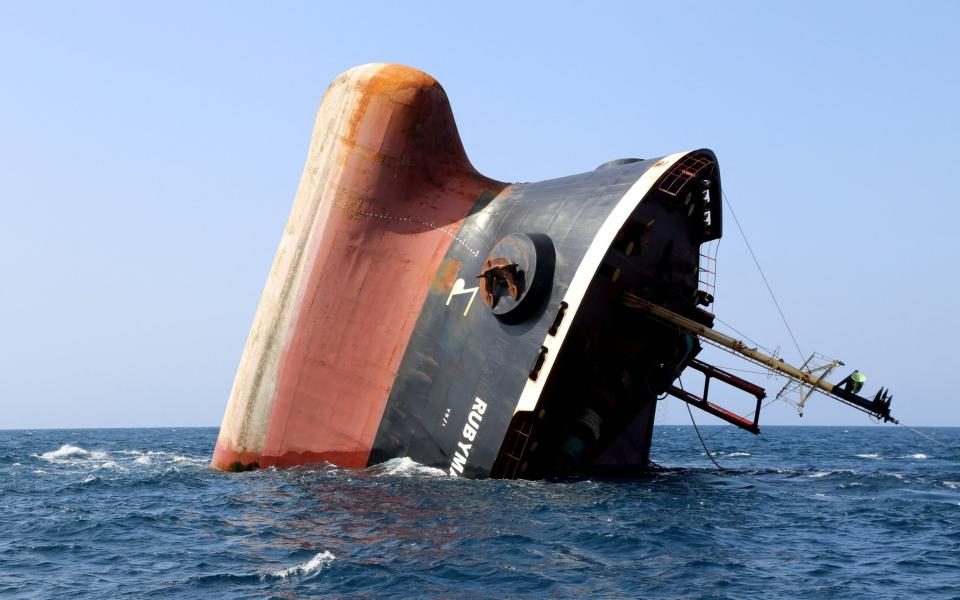Red Sea attacks trigger fresh inflation fears as shipping plunges

Shipping through a crucial Red Sea route has slumped to its lowest level since attacks by Iran-backed Houthi rebels began, stoking fears that inflation could return.
Just 927 cargo vessels travelled through the narrow shipping channel on the way to the Red Sea in June, down from 978 in May. It marked the lowest number since Houthi attacks escalated in November, according to data from Lloyd’s List Intelligence.
Transits fell 59pc year on year, compared to a drop of 42pc in January, as the Houthis moved into a “fourth phase” of assaults with new longer-range missiles and bigger warheads.
The drop marks an end to a 12-week period of stabilisation when traffic had begun to recover, Lloyd’s List Intelligence warned.
The tightening squeeze on global trade will spark fears of new supply chain problems, as diversions drive up shipping costs and add to the price of consumer goods.
Philip Shaw, the chief economist at Investec, warned that the intensifying attacks could complicate the battle to bring down inflation.
Mr Shaw said: “It is an inflationary factor in a disinflationary environment. There is a risk that the trend towards the target of sustained 2pc inflation in Western economies will be delayed because of a continued increase in transit prices.”
Thousands of ships transporting goods between Asia and Europe have had to reroute around the Cape of Good Hope since the Houthi attacks began last autumn in response to Israel’s war with Hamas.
The attacks with missiles and drones are a major threat to ships en route to the Suez Canal, the conduit for 12pc of global seaborne trade and triggered a US-led military response this winter.
There have been 74 Houthi attacks on commercial ships since mid-November, but in recent weeks there has been a major escalation, according to figures from the Joint Maritime Information Centre (JMIC).
Houthi attacks on ships passing through the Bab el Mandeb strait quadrupled from four in May to 16 in June, the highest number recorded in any month since last autumn, according to JMIC. In the week ending June 29 alone, there were five incidents.
Martin Kelly, of EOS Risk Group, said: “Over the past month, Houthi attacks have increased in volume, in accuracy and in lethality.”
The Houthis also claim to have manufactured their own Hatem-2 hypersonic missiles, which have much larger ranges. They claimed they used these missiles on an attack on the MSC Sarah last month, which was 750 miles away – nearly double the 430-mile range of their previous missiles.
Attacks have also become much more accurate, which suggests the rebels have been getting more support from Iranian spy ships, Mr Kelly said.
The Houthis have also made a “phase shift” in their target profile, which they have broadened out to include far more ships, Mr Kelly said.
Initially the Houthis were targeting ships that were linked to Israel, then after the coalition airstrikes they began to also target ships with US and UK flags. They then targeted ships that had called at Israeli ports.
But in recent weeks the Houthis have been emailing shipping companies to say they are targeting vessels that are part of fleets where another vessel has called at or is scheduled to call at an Israeli port, Mr Kelly said.

 Yahoo Finance
Yahoo Finance 